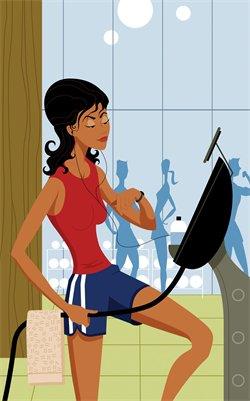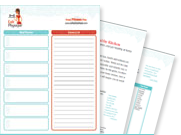Although calories often get a bad rap, the truth of the matter is that we need calories to live. Calories are simply how we describe food energy – the energy your body needs to flourish. There are three factors that influence how many calories your body needs:
- Basal Metabolic Rate (BMR): This is often referred to simply as metabolism, and nearly everyone wishes theirs was faster. Your basal metabolism is just the amount of energy your body needs when you’re asleep and awake. This energy helps fuel all of the things your body is automatically doing without any effort from you, including vital bodily functions like pumping blood to your heart.There are many factors that impact your BMR, including:
- Gender: Men have a higher BMR than women because men have a higher percentage of muscle which requires more energy than fat.
- Age: BMR typically decreases about 2% each decade after 30 as people generally gain fat tissue and lose muscle tissue.
- Growth: Children, pregnant women, and lactating women have higher BMRs because they’re all actively growing or promoting fast growth.
- Height: Taller people typically have a higher BMR because they have more body surface and lose heat faster. Seems strange, doesn’t it?
- Temperature: Our BMR increases in extreme temperatures (hot or cold) in order to keep the temperature inside our bodies constant.
- Fever and stress: Both of these increase BMR.
- Exercise: BMR is elevated for several hours after exercising.
- Smoking and caffeine: Both of these cause an increase in energy expenditure (increased BMR), but smoking and excessive amounts of caffeine can cause other health issues.
- Sleep: Your BMR is at its lowest when you’re sleeping because this is when the body needs the least amount of energy.
- Dieting: Your BMR decreases when you eat fewer calories than usual which is why people often gain weight very quickly when they stop dieting – their metabolisms have slowed down. If you’re experiencing this, one of our dietitians can help get you back on the right track.
- Level of Physical Activity: Your level of physical activity has a strong impact on how many calories you need. As your in home personal trainer may have told you, the number of calories you burn during exercise depends on the type of activity, how long and how hard its performed, and your body size. The bigger you are, the more energy you use during physical activity. That makes sense, right? Physical activity actually accounts for 25-40% of your total energy needs.
- Thermic Effect of Food: This is the smallest influencer of your calorie needs – only 5-10%. So basically, for every 100 calories you eat, 5 to 10 are used for digestion, absorption, and metabolism of nutrients.
So now that you know what affects your metabolism, which elements can you actually impact? You can’t change things like your sex, age or height, but you can certainly commit to regularly exercise. Increasing your amount or level of physical activity is the easiest way to increase your BMR.
Need help getting started with a regular exercise program in the comfort of your own home? Schedule an in home personal training session.


